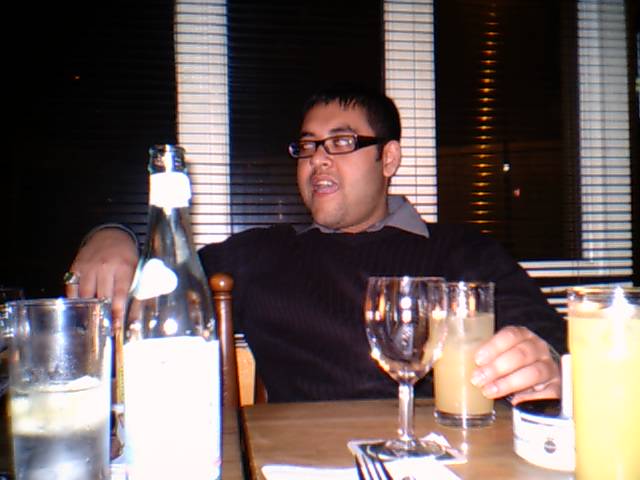THE RACE
"Quit! Give up! You're beaten!"
They shout at me and plead
"There's just too much against you now,
This time you can't succeed!"
And as I start to hang my head
In front of failure's face,
My downward fall is broken by
The memory of a race.
And hope refills my weakened will
As I recall that scene;
For just the thought of that short race
Rejuvenates my being.
A childrens race-young boys, young men
How I remember well.
Excitement sure! But also fear
It wasn't hard to tell
Their fathers watched from off the side
Each cheering for his son.
And each boy hoped to show his dad
That he would be the one.
The whistle blew and off they went!
Young hearts and hopes afire
To win and be the hero there
Was each young boy's desire.
And one in particular
Whose dad was in the crowd
Was running near the lead and thought,
"My dad will be so proud"
But as he speeded down the field
Across a shallow dip,
The little boy who thought to win
Lost his step and slipped.
Trying hard to catch himself
His hands flew out to brace,
And mid the laughter of the crowd
He fell flat on his face.
So down he fell and with him hope
-He couldn't win it now-
Embarrassed, sad, he only wished
To disappear somehow.
But as he fell, his dad stood up
And showed his anxious face,
Which to the boy clearly said:
"Get up and win the race"
He quickly rose, no damage done
-Behind a bit, that's all-
And ran with all his mind and might
To make up for his fall
So anxious to restore himself
-To catch and win-
His mind went faster than his legs;
He slipped and fell again!
He wished then he had quit before
With only one disgrace.
"I'm hopeless as a runner now;
I shouldn't try to race"
But in the laughing crowd he searched
And found his father's face;
That steady look which said again:
"Get up and win the race!"
So he jumped up to try again
-Ten yards behind the last -
"If I'm to gain those yards," he thought,
"I've got to run real fast."
Exerting everything he had
He gained eight or ten,
But trying so hard to catch the lead
He slipped and fell again!
Defeat! He lied there silently
-A tear dropped from his eye-
"There's no sense running any more:
Three strikes: I'm out! Why try?"
"Get up," an echo sounded low.
"Get up and take your place;
You were not meant for failure here.
Get up and win the race."
"With borrowed will get up" it said
"You haven't lost at all.
For winning is no more than this:
To rise each time you fall."
So up he rose to run once more,
And with a new commit
He resolved that win or lose
At least he wouldn't quit.
And when the fallen youngster
Crossed the line last place.
The crowd gave him the greater cheer,
For finishing the race.
And even though he came in last
With head bowed low, unproud,
You would have thought he'd won the race
To listen to the crowd.
And to his dad he sadly said,
"I didn't do to well."
"To me, you won," his father said.
"You rose each time you fell."
And when things seem dark and hard
And difficult to face,
The memory of that little boy
Helps me in my race.
For all of life is like that race.
With ups and downs and all.
And all you have to do to win,
Is rise each time you fall.
"Quit! Give up, you're beaten!"
They still shout in my face.
But another voice within me says:
"GET UP AND WIN THE RACE!"




